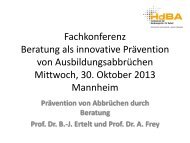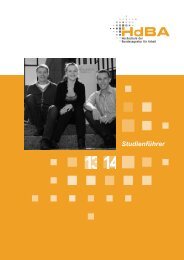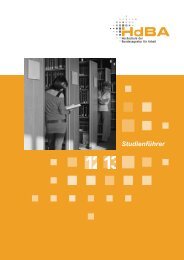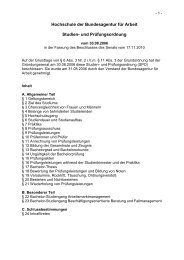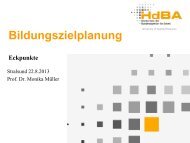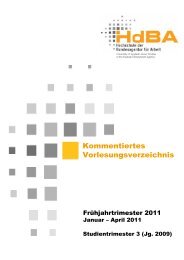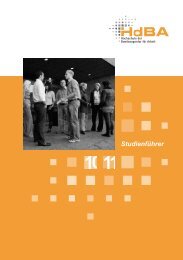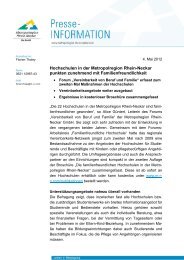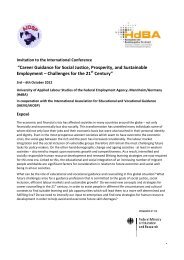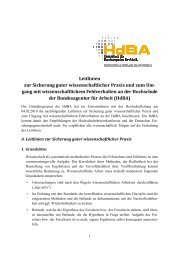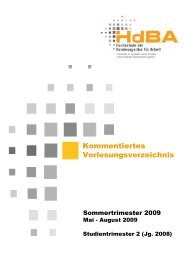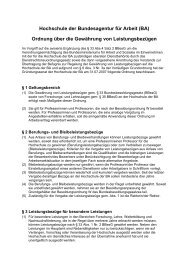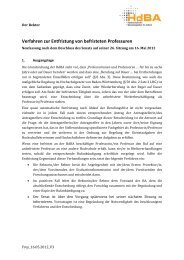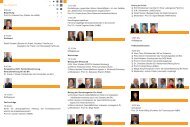Brain Drain - Hochschule der Bundesagentur für Arbeit
Brain Drain - Hochschule der Bundesagentur für Arbeit
Brain Drain - Hochschule der Bundesagentur für Arbeit
You also want an ePaper? Increase the reach of your titles
YUMPU automatically turns print PDFs into web optimized ePapers that Google loves.
�����������������������������������������<br />
���������������������������������������������������������������������<br />
�<br />
�<br />
1. Course 1: Selected Theories of Career Development and<br />
Counselling Regarding the Psycho-Social Effects of<br />
International Mobility<br />
1.1 Learning Objectives<br />
• Counsellors can analyze and evaluate the main theories of career choice and<br />
development in the view of psycho-social effects of BD – BG. (TAX 3 – foundation<br />
competences)<br />
• Counsellors can analyze and evaluate the main approaches of career counselling<br />
and guidance in the view of psycho-social effects of BD – BG. (TAX 3 – foundation<br />
competences)<br />
• Counsellors are familiar with newer theoretical and empirical studies<br />
on motives for BD – BG – <strong>Brain</strong> Re-gain. (TAX 2 – foundation competences)<br />
1.2 Unit 1: Matching Theories: Trait & Factor, Person-Environment-<br />
Correspondence (Holland)<br />
• The Trait & Factor Theory un<strong>der</strong>scoring the identity and exceptionality of every<br />
individual.<br />
• Quantification of aptitudes and traits of individual persons.<br />
• The Trait & Factor Theory un<strong>der</strong>scoring the interpersonal nature of a professional<br />
career and the lifestyle connected with it, conditioned by: the family, ethical and<br />
religious issues, social environment and pleasures.<br />
• The six categories one can use to classify kinds of personality and working<br />
environments: realistic, searching, artistic, social, venturesome and conventional.<br />
• Satisfaction from performing a definite kind of work depending on the degree of<br />
interdependence of the type of personality and working environment.<br />
• The theory stressing association of an individual and the kind of work well suited to<br />
his or her talent.<br />
1.3 Unit 2: Developmental and Post-Mo<strong>der</strong>n Theories (Super,<br />
Gottfredson, Savickas, Guichard, Poukelis)<br />
• Theories based on the conception of personal development (by Donald E. Super<br />
and Eli Ginzberg).<br />
• Versatility of the theories, attaching more importance to behaviours connected<br />
with occupational career spread in time and stressing the important role of one’s<br />
self.<br />
• Occupational development as the process of enforcing one’s own image.<br />
People’s opinions on who they are reflected in what they do.<br />
• Five stages of occupational development, whereas a developmental task which<br />
has to be accomplished can be assigned to each of them.<br />
• Life designing, career designing<br />
106



